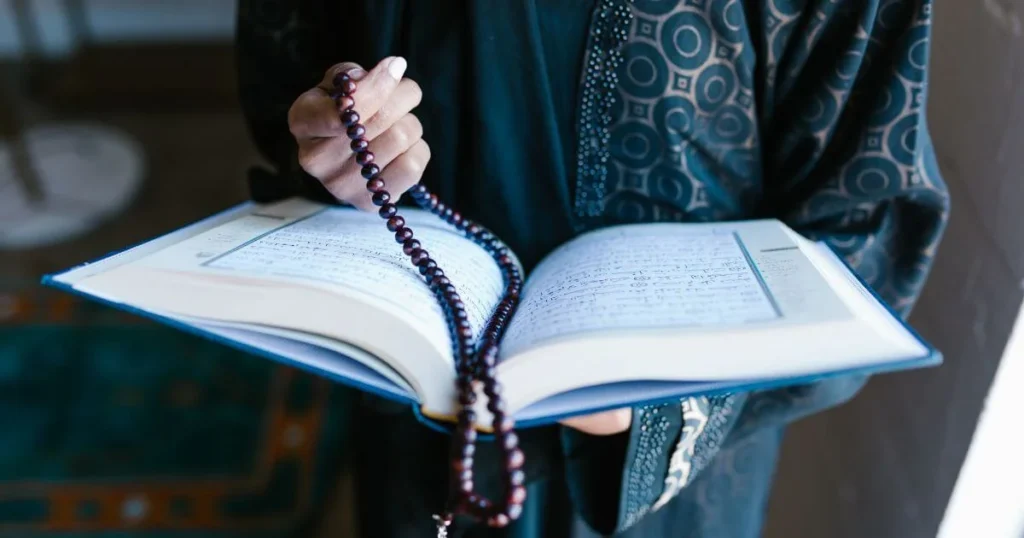
Common Arabic Islamic Expressions Meaning And Significance:
Introduction
Millions of individuals use Arabic, the language of the Quran, as a communication tool and as a source for deeply spiritual emotions. Arabic expressions with profound meanings that can be used to communicate with Allah, show thankfulness, and exhibit faith abound throughout Islamic culture. This post will go over five common Arabic Islamic expressions: Inshallah, Alhamdulillah, Bismillah, Mashallah, and Subhanallah. These expressions are not only an integral part of Islamic culture, but they also provide valuable insights into the spirituality and religion of those who employ them.
What Does Inshallah Mean
Inshallah Meaning?
“Inshallah” is a frequently used Arabic phrase in Islamic language. This phrase implies “if Allah wills” or “God willing.” It conveys the idea that nothing is certain and that Allah is ultimately in control of everything. When Muslims utter the phrase “Inshallah,” they express their dependence on God and submit to His will. This phrase is commonly used to remind everyone that Allah has the last say in matters concerning future plans or event outcomes.
“Inshallah” is used in a variety of contexts, from everyday tasks to career aspirations and personal objectives. It emphasizes the significance of having confidence and trust in Allah’s divine purpose by serving as a constant reminder that human efforts are subject to His decree, allahumma barik meaning is “May Allah subhanahu wa ta’ala Bless You”.
Inshallah Significance
Encourages humility and faith in Allah’s divine design by acknowledging human dependency on His will.
What Does Alhamdulillah Mean
Alhamdulillah Meaning ?
The phrase “Alhamdulillah” conveys appreciation and thankfulness. It is an expression of “praise be to Allah” or “thanks be to God.” Muslims show their gratitude for all of Allah’s favors by saying “Alhamdulillah,” which means “thank you, Allah.” It’s a means of expressing gratitude and contentment for all of Allah’s blessings and mercies, shukran meaning is Thank you .
This expression can be used in a number of contexts, including when one is feeling relieved, counting their blessings, or finishing a chore. It serves as a lovely reminder to have gratitude for everything in one’s possession, to keep an optimistic attitude, and to acknowledge that Allah is the source of all good things, tabarakallah meaning is “may Allah bless”.
Alhamdulillah Significance
Reminds people to express gratitude to Allah for His favors and promotes contentment and thankfulness.
What Does Bismillah Mean
Bismillah Meaning?
An integral part of Islamic tradition, “Bismillah” is used to invoke Allah’s name prior to beginning any task or activity. “In the name of Allah” is its meaning, and it is repeated to ask for Allah’s guidance and blessings. When one says “Bismillah” at the start of an action, they are committing to carrying it out with Allah’s assistance and for His benefit.
When it comes to regular actions like eating, drinking, going inside the house, or starting any big project, this phrase is especially crucial. It serves as a reminder to Muslims to base their behavior on their faith and devotion to Allah, making sure that their acts are in accordance with His will.
Bismillah Significance
acts as a continuous reminder to start all actions in Allah’s name, ensuring that one’s deeds are in line with their faith and dedication.
What Does Mashallah Mean
Mashallah Meaning?
“Mashallah” is an Arabic expression of wonder, respect, or gratitude for something striking or lovely. It refers to “as Allah has willed” as well as “what Allah has desired.” By saying “Mashallah,” one acknowledges the magnificence of something and attributes it to Allah’s will. It’s a method to honor the admired item and keep the bad eye away from it.
This expression is frequently used to compliment someone on their achievements, appearance, or possessions. The concept that all goodness and beauty come from Allah and that it is essential to acknowledge His role in creating life’s blessings is emphasized in “Mashallah.”
Mashallah Significance and Mashallah Reply
praises Allah and attributes all beauty and goodness to Him, highlighting the significance of acknowledging His participation in blessings.
What Does Subhanallah Mean
Subhanallah Meaning?
The phrase “Subhanallah” is used to honor and glorify Allah. Its meaning is “Allah is perfect” or “glory be to Allah.” When Muslims utter the phrase “Subhanallah,” they are praising Allah and recognizing His grandeur. When one considers Allah’s creation and the secrets of the universe, one can utilize it to convey awe, wonder, or humility.
When observing something amazing or appreciating the wonders of nature, this statement is commonly used. “Subhanallah” arouses awe and reverence for the Creator and the universe that He made.
Subhanallah Significance
inspires gratitude and adoration for Allah, cultivating awe and humility before His creation.
Common Arabic Islamic Expressions
These five popular Islamic sayings in Arabic are more than simply words; they capture the heart and core of Islam.
- Inshallah
- Alhamdulillah
- Bismillah
- Mashallah
- Subhanallah
Conclusion
These well-known Arabic-Islamic expressions are powerful exhortations to humility, gratitude, and trust rather than just being words. They capture the essence of Islam and the belief that Allah is ultimately in charge of everything, including the smallest daily tasks and the greatest achievements. Those who use these expressions have better lives because they maintain faith and spirituality at the centre of their actions and thinking. So, regardless of your faith or degree of interest in them, remember that these expressions have significant meaning and can lead to a closer relationship with God.
FAQS:
“Inshallah” conveys a dependence on Allah’s intentions and signifies “if Allah wills”.
“Inshallah” is a hopeful intention rather than a definitive answer.
Muslims might join the phrases “Inshallah” and “Ameen” to convey agreement and hope.
To express gratitude and thanks to Allah for His favors, Muslims say “Alhamdulillah“.
“Masha’Allah” or “Alhamdulillah” are typical responses to “Alhamdulillah.”
Before beginning any task, Muslims recite “Bismillah” in order to petition Allah for guidance and blessings.
Before beginning any task, Muslims recite “Bismillah” in order to petition Allah for guidance and blessings.
“Bismillah” is an invocation rather than a welcome.
“Mashallah” is a blessing and a way to show appreciation.
To “Mashallah,” one can reply with “Barakallahu feek” or “Jazakallahu khair.”
“Subhanallah” is used to express wonder and glorify Allah.
“Mashallah” and “Subhanallah” have distinct functions. “Mashallah” bestows blessings or expresses admiration for something, whereas “Subhanallah” exalts Allah.
Share on >>
